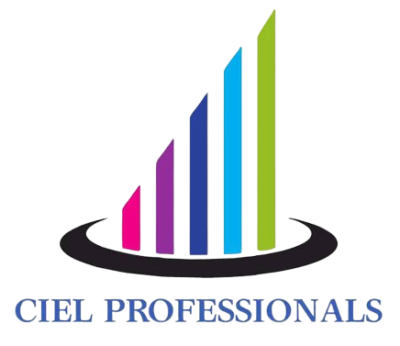Description
PMI-ACP (Agile Certified Practitioner) Course Details:
- 5 days of intensive training. Weekend or weekday class.
- 100% exam success
- An instructor-led online training over Zoom or Physical class or Self-paced learning.
- Money-back guarantee
- Access to our e-learning content
- Use of MS Project software included
- Access to the recorded video session
- PMI-ACP Exam Question dumps.
- 24×7 learner assistance and support
- Templates and industry-based scenarios.
- Certificate of completion.
Key Objectives
- Understand the core Agile principles and mindset.
- Learn how to apply Agile practices across different methodologies like Scrum, Kanban, and XP.
- Master tools and techniques for effective collaboration, stakeholder engagement, and team performance.
- Develop skills to manage Agile project risks, metrics, and continuous improvement.
- Prepare comprehensively for the PMI-ACP certification exam
Who Should Do This Course?
- Project Managers and Business Analysts.
- Scrum Masters and Agile Coaches
- Software Developers and IT Professionals
- Product Owners and Product Managers
- Team Leaders and Managers
- Professionals transitioning to a business analysis role.
- Organizations Adopting Agile Practices
- Anyone interested in enhancing their problem-solving and analytical skills.
Certification and Benefits
Upon completing this course, participants will:
- Be equipped with practical Agile skills to manage projects successfully.
- Gain confidence in applying for the PMI-ACP certification exam.
- Enhance their career prospects with a globally recognized Agile certification.
Upcoming Classes:
Participants for weekday Session in batches
| FOR WEEKDAY CLASSES | |||
| Batch | Month | Weekday Start | Weekday Finish |
| Batch 1 | February | 3rd | 7th |
| Batch 2 | February | 10th | 14th |
| Batch 3 | February | 17th | 21st |
| Batch 4 | February | 24th | 28th |
Participants for weekend Session in batches
| FOR WEEKEND CLASSES | |||
| Batch | Month | Weekend Start | Weekend Finish |
| Batch 1 | February | 1st | 16th |
| Batch 2 | February | 8th | 23rd |
| Batch 3 | February | 15th Feb | 2nd March |
| Batch 4 | February | 22nd Feb | 9th March |
Course Content for PMI-ACP
Module 1: Introduction to Agile
- Agile Manifesto: Values and Principles.
- Agile vs. Traditional Project Management.
- Key Agile Methodologies:
- Scrum
- Kanban
- Lean
- Extreme Programming (XP)
- Feature-Driven Development (FDD)
- Benefits and Challenges of Agile.
Module 2: Agile Mindset
- Understanding the Agile mindset and philosophy.
- Continuous improvement through Inspect & Adapt.
- Servant Leadership and its Role in Agile.
- Collaboration and Empowerment in Agile Teams.
Module 3: Agile Frameworks and Methodologies
- Scrum Framework:
- Roles: Scrum Master, Product Owner, Development Team.
- Artifacts: Product Backlog, Sprint Backlog, Increment.
- Events: Sprint, Sprint Planning, Daily Scrum, Sprint Review, Sprint Retrospective.
- Kanban Principles:
- Visualization, Work-in-Progress (WIP) limits, Flow, Continuous Delivery.
- Extreme Programming (XP):
- Pair Programming, Test-Driven Development (TDD), Continuous Integration.
- Lean Principles:
- Eliminate Waste, Optimize Flow, Build Quality In.
- Hybrid Approaches: Combining Agile with Waterfall (Agile-Waterfall).
Module 4: Value-Driven Delivery
- Delivering Business Value Early and Continuously.
- Defining Minimum Viable Product (MVP).
- Prioritization Techniques:
- MoSCoW (Must Have, Should Have, Could Have, Won’t Have).
- Weighted Shortest Job First (WSJF).
- Incremental and Iterative Delivery.
- Agile Metrics: Cycle Time, Lead Time, Burnup and Burndown Charts.
Module 5: Stakeholder Engagement
- Identifying Stakeholders in Agile Projects.
- Building Relationships with Stakeholders.
- Effective Communication:
- Agile Information Radiators.
- Active Listening.
- Stakeholder Feedback and Incorporation.
Module 6: Adaptive Planning
- Characteristics of Agile Planning:
- Rolling Wave Planning.
- Progressive Elaboration.
- Planning Levels in Agile:
- Product Roadmap, Release Planning, Iteration Planning, Daily Planning.
- Estimation Techniques:
- Story Points, T-shirt Sizing, Planning Poker.
- Agile Velocity and Capacity Planning.
Module 7: Team Performance
- Building High-Performing Agile Teams.
- Agile Team Roles and Responsibilities.
- Team Collaboration and Communication.
- Managing Conflicts in Agile Teams.
- Tracking and Improving Team Performance.
Module 8: Problem Detection and Resolution
- Identifying Risks and Issues Early in Agile.
- Root Cause Analysis and Problem-Solving Techniques.
- Continuous Improvement Through Retrospectives.
- Escalating Issues When Necessary.
Module 9: Continuous Improvement (Product, Process, People)
- Kaizen in Agile: Continuous Process Improvement.
- Iterative Feedback Loops.
- Retrospective Techniques:
- Start-Stop-Continue, 4Ls (Liked, Learned, Lacked, Longed For).
- Enhancing Team Skills Through Training and Mentoring.
Module 10: Agile Metrics and Tools
- Metrics for Agile Success:
- Velocity, Cumulative Flow Diagrams, Release Burnup.
- Agile Tools:
- JIRA, Trello, VersionOne, Rally.
- Tracking Progress Through Agile Dashboards.
- Assessing Agile Maturity Levels.
Module 11: PMI Code of Ethics
- Responsibility, Respect, Fairness, and Honesty in Agile Projects.
- Ethical Decision-Making in Agile Environments.
Practice and Certification Preparation
- Mock PMI-ACP Exam Questions.
- Practice Scenarios and Case Studies.
- Study Resources:
- PMI-ACP Exam Content Outline.
- “Agile Practice Guide” by PMI.
- Recommended Books: Mike Griffiths’ PMI-ACP Exam Prep Guide.
Final Assessment
- Comprehensive Case Study:
- Apply Agile principles, frameworks, and practices to a real-world scenario.
- Exam Strategy and Tips.
What Does the Training Pack Contain?
Certificate of completion.
PMI ACP Training materials
Training Manuals
Exam Prep Book
Exam simulations/mock exams
Students Workbook and Project Templates
Real-life application and understanding
Certified and Experienced trainers
Frequently Asked Questions
What is agile and scrum?
Agile is a framework, whereas scrum is a type of Agile methodology. There are different project management methodologies to implement agile framework and some of them are Kanban, Extreme Programming (XP) and Scrum.
I am already a PMP® certified, will PMI-ACP® certification help me in my career?
PMP focuses on Project Management Methodology in Agile structure which in a way, is similar to PMI-ACP. However, PMI-ACP is specific to Agile principles which makes it unique as it covers vastly on all Agile methodologies and principles.
Is there a project manager role in agile?
Project Manager is treated as Servant Leader in Agile. There is no specific role of a Project Manager in Agile. In Agile, there are different roles like Scrum Master, Product Owner, Dev team etc. Project Manager roles and responsibilities are shared among all these different stakeholders.
How long is the PMI-ACP exam?
PMI-ACP has 120 questions and 180 minutes (3 hours) time whereas PMP exam has 180 questions and 230 minutes (4 hours) time.
How is PDU counted for PMI-ACP?
For exam, you need 21 PDU’s which can be obtained from Ciel Professionals or any PMI authorized trainers. Certification is valid for 3 years and to renew the validation, and you need 30 PDU’s in agile topics every three years.
How to earn PMI-ACP professional development units (PDU)
Through training from any PMI registered education provider.
I want to know more about the training program. Whom do I contact?
You can join our live chat or call +2349070814970. WhatsApp +2349070814970







Reviews
There are no reviews yet.